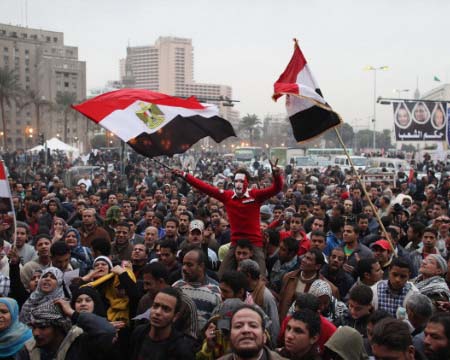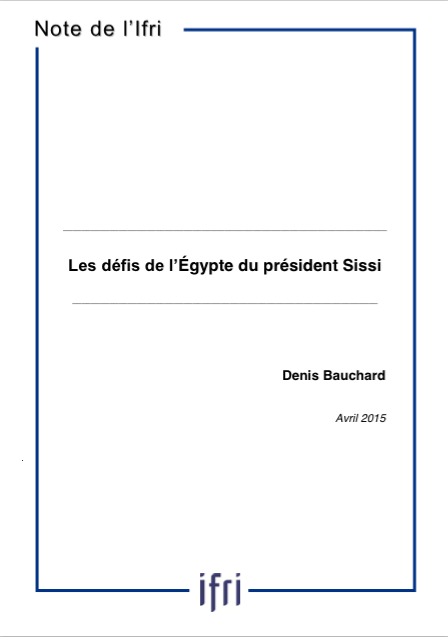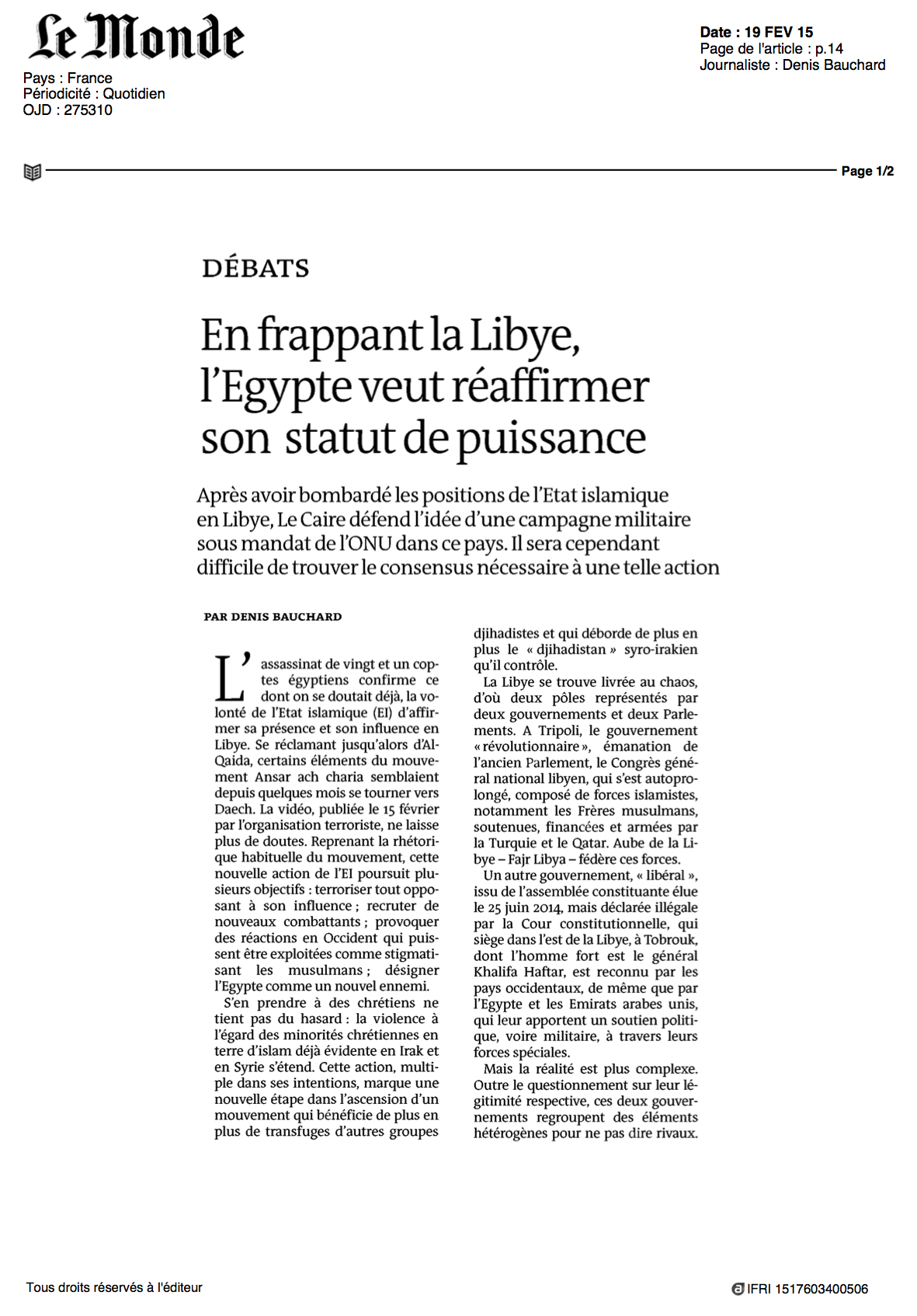Gas and oil diplomacy in Eastern Mediterranean prelude to regional war
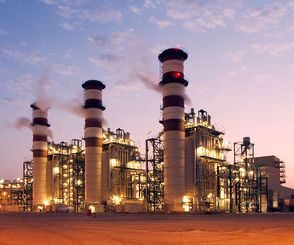 The Middle East has undergone major vicissitudes following the “Arab Spring” demonstrations. The Mideast is one of the most important regions in the world and the stability of which is mandatory to peace and stability in the world. Since 2011, the Middle East has entered a state of uncertainty with many conflicts in Syria, Iraq, Yemen, Libya and other states that are apt to witness internal wars.
The Middle East has undergone major vicissitudes following the “Arab Spring” demonstrations. The Mideast is one of the most important regions in the world and the stability of which is mandatory to peace and stability in the world. Since 2011, the Middle East has entered a state of uncertainty with many conflicts in Syria, Iraq, Yemen, Libya and other states that are apt to witness internal wars.
Nowadays, tension is on the rise between Turkey and Egypt on energy resources in the Mediterranean Sea. Thus, relations between Ankara and Cairo after Egyptian foreign ministry’s statement regarding Turkish rejection of the agreement signed between Cyprus and Egypt in 2013 rings an alarm bell. Egyptian statement reads: "Any attempt to prejudice or undermine Egypt's sovereign rights in its economic zones in the Middle East is rejected and will be countered.”
Agreement equals access
The Egyptians believe that the agreement signed with Greek Cypriots gives Cairo access to an area in East Mediterranean that is of particular interest for hydrocarbon companies since the discovery of the huge Zohr gas fields in 2015, while Turkey’s foreign minister Mevlut Çavusoglu contested the deal, declaring that Turkish Cypriots had been unfairly prevented from claiming their “inalienable rights to the natural resources” around the island, and revealed Turkish plans to begin exploration in the area.
As long as Ankara does not recognize the demarcation of the border signed between Egypt and Cyprus in 2013, describing it as illegal, the region is once again turning towards a new approach of belligerence and rivalry. And the reason is gas politics. The same applies to the gas fields between Israel and Lebanon.
Such a sudden escalation of tension between Egypt and Turkey is a sign of a blow to the efforts to abate any militarization of the Mediterranean Sea as this would be the ignition for other regional and international wars.
Gas exploration
On February 5, 2017 the Turkish Foreign Minister announced that his country plans to start oil and gas exploration in the Eastern Mediterranean soon in the areas at the continental shelf at latitudes 32, 16 and 18 degrees. The Turkish minister issued an implicit message to both Cairo and Nicosia, saying: “No foreign entity, company or even ship can carry out any illegal scientific research or exploration for oil and gas in the continental shelf of Turkey and the maritime region.” On the other hand, the Egyptian side sees its full right to defend its interests according to the agreement it deems perfectly legal. The Turkish government believes that the Greek Cypriot cannot unilaterally adopt laws regarding the exploitation of natural resources on behalf of the whole Cypriots.
The Eastern Mediterranean is expected to witness wars on gas and oil between Turkey, Egypt, Israel, Lebanon, Syria, Cyprus and Greece in territorial waters. In July 2017, Ankara reacted strongly to the Greek Cypriots when they started to drill for gas. As a result, the Turkish army dispatched a frigate in the Eastern Mediterranean to monitor a drilling ship that is believed to have begun searching for oil and gas off in spite of Turkish government’s rejection, considering it as a hostile act.
When Egyptian president Abdul Fattah Al-Sisi paid a visit last November to Cyprus, he had talks with Greek Cypriot officials on gas and oil resources in the region. Tensions since then started to amount, with both Turkey and Egypt blaming each other of interfering in the other’s internal affairs.
It is expected that Ankara would resort to legal proceedings to nullify the agreement because of what it called “violation” of the continental shelf.
– Shehab Al Makahleh
Nowadays, a drill ship is exploring for oil and gas in the region. Turkey sounds unhappy with the agreement between Italy, Greece and Israel to construct a gas pipeline from East Mediterranean to Europe at a cost of US$6 billion. This would ignite another tension, with Italy being party of it.
Why war is shimmering in the Mediterranean?
Political differences are the preponderant factor determining relations between countries and intimidating to bring about instability and chaos to the region with acts of hostilities caused by race toward gas and oil reserves. The Eastern Mediterranean basin is one of the most affluent areas with natural resources, the most important of which is natural gas. An American study conducted in 2010 shows the gas reserves in this region are estimated at 345 trillion cubic feet. The region also contains 3.4 billion barrel of oil reserves. As long as there is no mutual cooperation between the countries concerned due to demarcation issue, any war would break out any moment and the region is becoming a time bomb.
What do Ankara and Cairo want?
It is expected that Ankara would resort to legal proceedings to nullify the agreement because of what it called “violation” of the continental shelf. The Turkish moves are likely to disrupt the efforts of Egypt and Greece to conclude a maritime demarcation agreement.
With regard to the economic crisis facing Egypt since 2011, Cairo is prudent to finish the demarcation issue with Greece and Cyprus in order to avoid any rift with Turkey. Since Cyprus has also signed another agreement with Israel, the ghost of war is chasing the countries in the Middle East. In the past, former Egyptian President Hosni Mubarak was procrastinating to discuss the issue of gas and oil agreements with Greece and Cyprus until the dispute between Turkey and Greece over Cyprus is over as he was considering this conflict a “political headache.”
Gas diplomacy might seem germane regarding Israel’s ties with Arab neighbours. The state of suspicion between Israel and Arab neighbors would lead to skirmishes on this basin as it could be a strategic alternative to Russian Liquefied Natural Gas which is exported to Europe. This justifies why China and Russia are playing a pivotal role in Syria today which has a huge natural gas reserves in the Mediterranean Sea. Egypt, Israel, Syria, Lebanon, Cyprus, Greece and Turkey are flaunting their emerging energy dexterity as a prospective weapon as each of them draws a plan to have the upper hand in the region and play a pivotal role in shaping the Middle East’s political scene.
Article published in Al Arabiya: https://english.alarabiya.net/en/views/news/middle-east/2018/02/10/Gas-and-oil-diplomacy-in-Eastern-Mediterranean-prelude-to-regional-war.html
How Moscow-Riyadh rapport fits into the Mideast scene
 The recent visit to Moscow of Mohammed bin Salman, the deputy crown prince and defense minister of Saudi Arabia, didn't make many headlines. However, given the current developments in the Gulf with Qatar, the visit has acquired new significance.
The recent visit to Moscow of Mohammed bin Salman, the deputy crown prince and defense minister of Saudi Arabia, didn't make many headlines. However, given the current developments in the Gulf with Qatar, the visit has acquired new significance.
Until recently, "America's hand" was seen behind virtually all events in the Middle East. Now that Moscow has raised its regional profile, “Russia's hand" is seen here and there: No sooner had the Qatar crisis erupted June 5 than some suggested the prince had discussed with the Kremlin the Saudis’ decision to shun Qatar — which is very unlikely.
President Vladimir Putin gave his guest a hearty welcome when the prince arrived May 30. Their public statements struck a particularly friendly note, as is usually the case at the meetings of high-ranking officials. Putin praised their rapidly expanding ties, stressing that since early 2017, economic cooperation has increased by 130%, according to state-owned Tass news agency.
As he touched on political and military contacts, Putin reminded journalists that the two states are searching for ways to resolve complicated situations, “particularly in Syria,” and that “energy agreements are very important for our countries.”
Salman also stressed energy cooperation with Russia, saying, “The main point is that we are building a solid foundation for stabilizing the oil market and energy prices and this is creating good opportunities for building our strategic future.” He also described the current stage in the bilateral relations as “one of the best.”
Indeed, today’s relationship contrasts sharply with the once virtually nonexistent economic ties, which were inhibited in the 1990s and 2000s. Both countries’ economies are driven largely by oil production and there wasn’t much opportunity for collaboration at that time.
Also, Russian Muslims hold the Saudi royal house in high esteem. The renewed emphasis on religion in Russia makes the reverence particularly significant. It is noteworthy that authorities from Russia's Muslim-majority regions pay regular visits to Saudi Arabia and meet with the country’s top officials in a bid to grow their stature in Russia’s Muslim community.
Yet the resulting state-to-state interactions have been somewhat bizarre in recent years. The friendly relations are underpinned by numerous agreements, but few of those have been implemented. Both countries aim to build trust, which they deem absolutely necessary. Moscow and Riyadh have had different perspectives on the international landscape and until recently, they found themselves on opposite sides of most regional issues.
However, the situation has changed, as life is teaching the two countries to be clear eyed about current developments. While Russia and Saudi Arabia continue to maintain opposing views on the Syrian peace process and Iran’s regional role, they have managed to find some common ground. Moscow toned down its rhetoric about Yemen and Bahrain, and it promotes cordial relations with Saudi-allied Egypt and cooperation with the kingdom on the ruptured Libyan government. Finally, both Russia and Saudi Arabia have faced similar economic problems caused by the oil price plunge, which prepared the ground for their rapprochement and a potentially promising “oil alliance.”
Notwithstanding their contrasting approaches to regional matters, Russia’s military campaign in Syria won Riyadh’s respect. Thus, the kingdom started to view Moscow in some ways as a potential alternative to Washington, which had proved unreliable under the administration of President Barack Obama.
In this context, the frequent encounters of the Saudi prince with Putin have special importance.
Even though Syria was officially the key item on the meeting’s agenda, no formal arrangements were finalized. What is more important, though, was the two sides refrained from rebuking each other.
Salman, according to some informed sources in Moscow who spoke with Al-Monitor, was supposed to spend far more time in Russia’s capital. Today, however, it is clear that the dramatic developments brewing in the Gulf regarding Qatar most likely led him to shorten his stay.
As the meeting failed to produce any serious deal, it allows for some speculation about the prince’s real agenda regarding Moscow. It seems quite evident that Salman intentionally arrived in Moscow soon after US President Donald Trump’s trip to the Saudi kingdom May 20-21. Even the red carpet welcome the Saudis gave Trump couldn’t close the credibility gap between them. Riyadh doesn’t completely trust Washington. Given the uncertain future of Trump’s presidency and his still-vague Middle Eastern strategy, putting all of the kingdom’s eggs into one basket would be an ill-conceived step, to say the least.
That’s where Egypt comes into this speculative scenario.
Some experts in Moscow assume the Egyptian government needs Russia’s weapons but is unable to pay the bill. However, Riyadh, capable of backing Egypt, is becoming involved in establishing security zones in Syria, which could emerge as a way to constrain Iran’s ambitions for control in Syria. Yet Saudi Arabia, a militarily weak state mired in the Yemeni war, would rather entrust a reliable ally, presumably Egypt, with a peacekeeping role in the security zones. This would give Egypt a chance to strengthen its regional stature and bolster popular confidence in its government, which is grappling with severe economic problems.
This interpretation fits current developments in the Gulf.
Russia is on good terms with Qatar and Iran — Saudi Arabia’s sworn enemy. Qatar’s alleged ties to terrorism and Iran are the reasons it is being ostracized in the Gulf. Judging by statements from the Russian Foreign Ministry, Moscow is not willing to interfere in the crisis engulfing Qatar — which suits Riyadh but that in no way means Russia’s support for Iran is waning. What this could mean is that Russia wants to see Saudi Arabia as a leading representative of Arab Gulf monarchies’ interests — in which case Russia must satisfy the Saudis’ legitimate interests in the region.
Article published in Al Monitor: http://www.al-monitor.com/pulse/originals/2017/06/russia-saudi-arabia-gcc-alliances-qatar-middle-east.html
Photo credit: REUTERS/Pavel Golovkin
Arab Leaders Try to Get Trump’s Attention
 Eager to unlock the door to US-Arab cooperation on tackling regional issues following decades of disappointment with Washington’s lack of understanding of their concerns, three Arab leaders are engaging US President Donald Trump’s new administration over the next month.
Eager to unlock the door to US-Arab cooperation on tackling regional issues following decades of disappointment with Washington’s lack of understanding of their concerns, three Arab leaders are engaging US President Donald Trump’s new administration over the next month.
Egyptian President Abdel Fattah el-Sisi met Trump at the White House on April 3; Jordan’s King Abdullah II will be in Washington on April 5; and Palestinian Authority President Mahmoud Abbas is expected to follow later this month or in May. In their meetings, these leaders hope to discuss a number of issues, including the Israeli-Palestinian crisis, the civil war in Libya, and the threat posed by global terrorist organizations.
In their meeting on April 3, Trump and Sisi discussed holding an Israeli-Palestinian peace conference in the United States in June and renewing joint military exercises, which former US President Barack Obama halted in response to the Egyptian military government's bloody crackdown on protesters in 2013. The Egyptian leader, a former chief of the armed forces, sought logistical support from the United States for the Egyptian army in its fight against terrorism in the Sinai. Sisi would like Trump to focus more on ending the six-year-old civil war in Egypt's western neighbor—Libya. The two leaders also discussed regional issues, including Syria, Yemen, and Iraq.
Abdullah, who hosted the Arab League Summit in Amman on March 29, is eager to solve a number of regional conflicts. Jordan is an important player in US-led military campaigns against al-Qaeda and the Islamic State of Iraq and al-Sham (ISIS). Abdullah will discuss with Trump the position of Arab leaders on the Israeli-Palestinian crisis—at the summit in Amman Arab leaders reiterated their support for an independent Palestinian state with Jerusalem as its capital, and opposed the construction of more settlements.
Jordan has playedan active role in Arab efforts to end the stalemate in talks between the Palestinians and the Israelis. The king himself has advocated for Palestinian national aspirations. On his previous visit to Washington in February, Abdullah sought to persuade the new US administration to reverse itsrhetoric about moving its embassy from Tel Aviv to Jerusalem, and to call for a freeze of settlement construction in the West Bank. In his meeting with Trump, Abdullah will likely reiterate Arab support fora two-state solution. Thus, this time, the royal visit aims to make Trump more sympathetic toward the Arab perspective on the Palestinian issue.
On his visit to Washington, Abbas is expected to ask Trump to seriously consider a solution to the Israeli-Palestinian crisis and will reiterate the Arab position that a two-state solution is impossible without East Jerusalem as the capital of Palestine. In his meeting with Trump, Abbas will likely argue that if there is no Palestinian state, no one in the Middle East, including Israelis, will enjoy the benefits of peace. Denying the Palestinians their right to statehood will only lead to a rise in the level of terrorism and extremism.
The Palestinian foreign ministry said in a statement that on the sidelines of last month’s Arab League Summit, Abbas, Abdullah, and Sisi coordinated their positions on a number of regional issues and decided what they would discuss when they visit the White House.
These visits to Washington come at time when the greater Middle East is beset by numerous wars and political crises. Restarting Israeli-Palestinian peace talks based on the Arab Peace Initiative adopted at the Beirut Arab Summit in 2002, which calls for “land for peace,” is a high priority for the Egyptian and Jordanian governments, as well as the Palestinian people.
The Oslo Accords initiated a period of peace between Israel and the Palestinians, delayed permanent status talks on Jerusalem, and paved the way for the creation of an independent Palestinian state. Two decades later, however, the Israeli-Palestinian conflict remains unresolved and there is still no sovereign and independent Palestinian state. Obama—who believed that a multilateral effort, and not a single power, would be able to help reach a final settlement—was unable to resolve the crisis.
The Arab leaders want international powers to resolve the Israeli-Palestinian crisis because they believe that if a peace agreement is reached it will resonate positively throughout the region and the world.
One positive outcome of the Amman summit was that it put the Israeli-Palestinian conflict, overlooked for many years due to other conflicts and threats of extremism in the Middle East, back in the spotlight. In their final statement, Arab League Secretary General Ahmad Aboul Gheit reaffirmed a “commitment to the two-state solution and to the right of the State of Palestine to restore its sovereignty over the territories occupied in 1967, including East Jerusalem.”
Will the Trump administration ask Israelis and Palestinians to prepare for talks in the near future? Will Jordan be in charge of liaising between regional actors and the United States in coordination with the United Nations (UN) and the Arab League? Will the forty-fifth US president become more sympathetic to Egypt’s agendas in Libya and in the Sinai? The answers to these questions remain to be seen.
What is known is that Abdullah, Sisi, and Abbas will do their best to convince Trump to begin taking more seriouslytheir ideas to resolve crises that threaten the security of Americans and Arabs alike.
For decades, Arabs have been justifiably disappointed with Washington’s stance on issues in the Middle East. The Jordanian, Egyptian, and Palestinianleaders are hoping to convince Trump to shift course and take Arab interests and concerns into account more than his predecessor did. If Washington fails to help the Arab world resolve its conflicts, there will be tectonic shifts toward radicalism, endangering governments in the region and opening the gate to even more chaos.
Initially published by Atlantic Council: http://www.atlanticcouncil.org/blogs/new-atlanticist/arab-leaders-try-to-get-trump-s-attention
Shehab al-Makahleh (Sam Mak) is a senior advisor at Gulf State Analytics with experience as a political advisor in the United Arab Emirates. IMESClub Member.
Female images in modern Egyptian advertising: a religious perspective
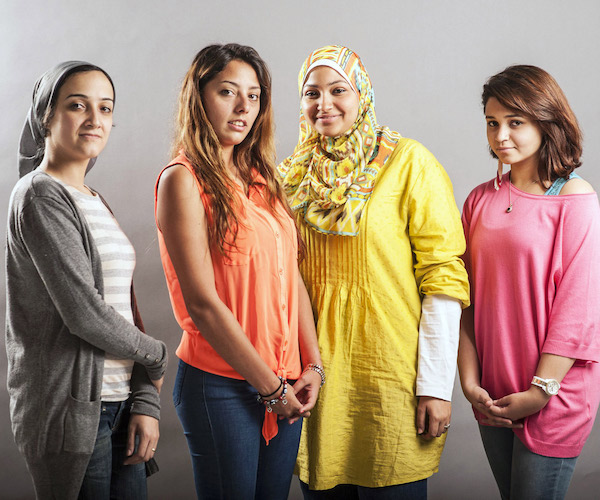 Modern Egyptian society can have various definitions: traditional, collective, developing, industrial and many more. But above all it is religious. Having played fundamental role in country’s formation throughout several thousands of years religion is still playing significant role penetrating almost every sphere of life including politics, economy and culture. Described by the famous ancient Greek historian Herodotus in the V century BC as “the most god-fearing people in the world” Egyptians till today seem to bear this very characteristics. Throughout the history Egyptians had always been profoundly religious developing remarkable religious consciousness, which would be appropriate to call theocentric as long as the idea of God is central in their world perception.
Modern Egyptian society can have various definitions: traditional, collective, developing, industrial and many more. But above all it is religious. Having played fundamental role in country’s formation throughout several thousands of years religion is still playing significant role penetrating almost every sphere of life including politics, economy and culture. Described by the famous ancient Greek historian Herodotus in the V century BC as “the most god-fearing people in the world” Egyptians till today seem to bear this very characteristics. Throughout the history Egyptians had always been profoundly religious developing remarkable religious consciousness, which would be appropriate to call theocentric as long as the idea of God is central in their world perception.
Undoubtedly a key-role in value formation of Egyptian society belongs to the religious factor. The data of value surveys for Egypt conducted by the World Value Survey in 2011 perfectly illustrates this point: when asked about the importance of religion as much as 94.1% respondents said it was very important. The question about religion as an important child quality made 83.4% of Egyptians say they thought of it (for more details see “World Values Survey. WV6 Results – Egypt 2012”). Risking to fall into precarious generalization it is still possible to assume that religiosity is predominantly detected in the lower and middle strata of the country’s society.
 Another paradigm that is often reasonably perceived as confronting religiosity in Egypt is secularism. Being associated with such form of globalization as westernization, the secular tendency is merely associated with the upper strata of Egyptian society. These two concepts – religiousness and secularity – inevitably tend to periodically clash arousing public unrest. Moreover, in the past few decades it is religiosity/secularism dichotomy that defines the tension fluctuations of the Egyptian public discourse. Enough to mention the two famous Egyptian-born formulas: “Islam is the Solution” used by the notorious radical Islamist organization “Moslem Brotherhood” and “Secularism is the Solution” used by the local liberals.
Another paradigm that is often reasonably perceived as confronting religiosity in Egypt is secularism. Being associated with such form of globalization as westernization, the secular tendency is merely associated with the upper strata of Egyptian society. These two concepts – religiousness and secularity – inevitably tend to periodically clash arousing public unrest. Moreover, in the past few decades it is religiosity/secularism dichotomy that defines the tension fluctuations of the Egyptian public discourse. Enough to mention the two famous Egyptian-born formulas: “Islam is the Solution” used by the notorious radical Islamist organization “Moslem Brotherhood” and “Secularism is the Solution” used by the local liberals.
As mentioned above religion is inseparable from all spheres of life in the land of pyramids and marketing strategies are no exception: they are naturally worked out with serious consideration of the religious factor.
Consequently these two tendencies – religious and secular – are shaping modern female images used in Egyptian marketing presenting them in two various ways: either as a “Good Housewife” or as a “Liberal Beauty” (or sometimes “Femme Fatale”). (Photo Religious 1 / “Religious image ad pasta” & “Secular ad Eva cosmetics”)
 The first case deals with the image of a carrying mother, who in most cases would be middle-aged, veiled, corpulent and representing a moral ideal of Egyptian woman. This type is targeting the audience of Egyptian housewives, predominantly conservative or religious as long as it portrays a real woman, with whom a potential consumer is capable to associate herself. This image is mostly used to market household products (laundry washing powder, dish washing liquid, laundry conditioner, soap, etc.) or food products (oil, ghee, pasta, sauces, etc.)
The first case deals with the image of a carrying mother, who in most cases would be middle-aged, veiled, corpulent and representing a moral ideal of Egyptian woman. This type is targeting the audience of Egyptian housewives, predominantly conservative or religious as long as it portrays a real woman, with whom a potential consumer is capable to associate herself. This image is mostly used to market household products (laundry washing powder, dish washing liquid, laundry conditioner, soap, etc.) or food products (oil, ghee, pasta, sauces, etc.)
(Persil commercial https://www.youtube.com/watch?v=f-C52cswJFU)
The second case portrays a secular young lady intentionally challenging traditional and conservative social norms. (The secular case would also include inviting local female stars and foreigner ladies to be the images of advertising campaigns). This image is targeting two categories – secularly oriented females and men. On the one hand, this beautiful woman becomes a dream model for young girls and ladies, who wish to acquire the same striking attractiveness (of course on condition they buy the advertised product). In this case the image is used to market either beautifying products (shampoos, body creams, etc.) or any other products associated rather with pleasure then with necessity. (Photo “Secular ad chocolate”) On the other hand, female sexual appeal is being actively used to target male audience. Such approach is applied to market goods that are traditionally purchased by men (be it real estate, ceramics, water heaters, etc.). (Photo “Secular ad of ceramics”)

Needless to say that these two images are precisely reflecting the two female stereotypes existing in contemporary Egyptian society. These main types of female images are perceived as exemplary.
Among the main Egyptian values shaped by Islam is family: religious tradition implies that family is the most important thing in human life. Thus, Egyptian women are expected to become one of these two – either ideal wife and mother happy with her family life or independent beauty-heartbreaker, who is attracting men and, thus, acquiring a high possibility to grasp a husband. So it’s all about getting married in the end – the necessary step in Egyptian successful life plan.
Interesting that there is a strict differentiation in the usage of female and male images in advertising as if these two worlds hardly intersect. For instance, banking and industrial spheres are believed to solely belong to men and consequently their advertising is aimed at purely male audience.
 Saibank commercial: https://www.youtube.com/watch?v=UUTZin2BuBM&index=4&list=PLrsMKzyKdJZzHs1BfHXPYBbgl8EDD5U5B
Saibank commercial: https://www.youtube.com/watch?v=UUTZin2BuBM&index=4&list=PLrsMKzyKdJZzHs1BfHXPYBbgl8EDD5U5B
Misr Bank: https://www.youtube.com/watch?v=FyYLeuO_EdM
Since several decades now mass communication (and advertising being part of it) has become one of the most influential factors forming human concepts, ideas and worldviews. Consequently, marketing should bear social responsibility along with promoting successful sales. And this point is unfortunately not there yet – Egyptian advertising campaigns of today tremendously lack images of women aiming to achieve in life something more than just a happy marriage. It needs to promote images of successful and passionate female scientists, artists, writers, journalists or businesswomen, who freely pursue their high goals, be it impressive personal career or involvement in social matters.


Egyptian Revolution: New Problems Instead of Democracy
The 2011 revolution in Egypt unleashed a revolutionary storm throughout the region. It was the changes in this, the largest and most influential country socially and culturally, that aroused the neighbours who were intrigued, but not really inspired by the earlier experience of tiny Tunisia. Inspired by the example of Egyptians who toppled the seemingly eternal regime of Hosni Mubarak, people took to the streets in the hope of a better life. However, for the Land of Pyramids itself the revolution’s consequences were mixed in the political and socio-economic sense.
No real change of elite took place, as witnessed by the outcome of the autumn 2015 parliamentary elections which were boycotted by practically all the opposition parties. The turnout was particularly low among young people who had been the driving force of the “revolution on the Nile,” as initially the demonstrators on Tahrir Square were young people who had lost faith in their future and who had nothing to lose. Today there is a tangible sense of disappointment among the young generation in the new regime. This is an alarming signal considering that in 2015 young people accounted for 23.6% of Egypt’s population (about 20.7 million). What is more, a quarter of them are unemployed and 51.2% live below the poverty line.
Thus the social base of the protest has not disappeared, which is fraught with fresh outbursts of discontent unless the authorities take urgent and effective measures to improve the situation. At the same time qualitative changes in Egypt call for a restructuring of the entire political and economic mechanism, something that is not happening in practice.
New Power with Old Habits
At the same time qualitative changes in Egypt call for a restructuring of the entire political and economic mechanism, something that is not happening in practice.
Meanwhile the functionaries of the National Democratic Party which controlled the country’s parliament under Hosni Mubarak are returning to politics. It is notable that there are about 50 former army and police officers among the new MPs. Observers note the passivity of Egyptian voters (the official turnout figure is a mere 28%) and compare the recent parliamentary elections to the sluggish elections of the Mubarak era.
The new speaker of the lower house of the Egyptian parliament elected in January 2016 was professor Ali Abdel-Al, a veteran of Egyptian politics whose candidacy was highly controversial, with some opposition deputies openly declaring the return of the Mubarak times while the speaker himself hastened to pledge his loyalty to President Sisi calling him “the leader of Egypt's new march”. Critics were quick to note that this was how Mubarak, and before him Sadat and Nasser, were hailed. TV presenter Tawfik Okasha, an independent MP, declared that “the election of Abdel-Al was a big mistake because he is an old guard figure who represents an extension of the autocratic politics of the former NDP.”
After a brief period of the rule of the Muslim Brotherhood power in Egypt is again in the hands of the old elite. The elite has not been renewed by recruiting new leaders who came into prominence during the course of the revolution. Moreover, instead of integration of counter elites they are being alienated.
It would be fair to say that the old regime has been restored, only with new protagonists at the head. As a result, even the Egyptian media point out that Sisi is a younger version of Mubarak.
Terror Becoming a Common Phenomenon
The elite has not been renewed Moreover, instead of integration of counter elites they are being alienated. The old regime has been restored, only with new protagonists at the head.
However, the continued presence of factors that can fuel a new revolution is only one of Egypt’s problems. The toppling of President Mursi put the country on the brink of a civil war. The Muslim Brothers who stood behind Mursi had ambitious power plans, especially because at first they were the best organised political force in Egypt and felt the support of Qatar, Turkey and even the USA. Now the Muslim Brothers are again underground and at least some of them are leaning towards the idea of armed insurrection.
And corruption dropped very little compared to the pre-revolutionary period.
Terror is taking hold in Egypt, with terrorist attacks constantly being reported. This is very dangerous considering the chaos in neigbouring Libya and the increased activity of radical Islamists on Sinai because now arms smuggling has become much easier. Observers note the highest level of terrorist threat in Egypt in the last 15 years. In November 2014 the Ansar Beit al-Maqdis group active on Sinai Peninsula declared its allegiance to Islamic State. The militants have unleashed a virtual guerilla war in the northern part of Sinai. In June 2015 radical Islamists staged a successful attack on the country’s Prosecutor General Hisham Barakat in which foreign tourists also died. Egypt’s main historical landmarks – the Giza pyramids and Karnak temples in Luxor – came under attack.
The main question is who will tackle the backlog of problems. One of the key difficulties is the inefficiency of the civil service which is the main brake on economic development. Businessmen complain that not a single high-ranking bureaucrat can make a significant decision without a say-so from the military. That greatly hampers the conclusion of major deals.
According to Transparency International, corruption in the country is rife. In 2010, ie before the revolution, Egypt’s Corruption Perception Index was 31 points (the higher the figure, the less corrupt a country is). In 2012 and 2013 when the corrupt regime seemed to have been swept away by the new forces, the index rose to 32 points (out of 100), in 2014 to 37, dropping to 36 in 2015. In 2015 Egypt was, on that count, way behind such countries in the region as Qatar (71), the UAE (70) and even Jordan (53). The conclusion suggests itself that the authorities on this issue did not go beyond high-profile token actions and corruption dropped very little compared to the pre-revolutionary period.
Egyptian Pinochet?
In foreign policy Sisi’s most notable step has been the upgrading of relations with Russia.
In the meantime ordinary Egyptians pin great hopes on the country’s new leader Abdel Fattah al-Sisi, a fact not lost on Sisi himself (or the people around him) who puts the stake on big infrastructure projects and economic liberalisation. However, whether he will become an Egyptian Pinochet is a big question. Today he is seen above all as the man who saved the country from Islamist dictators who, according to many Egyptians, hijacked the revolution” using populist slogans but proved to be unable to govern the country and deliver on their high-sounding promises.
The Egyptian media name the opening of a new line of the Suez Canal as the main achievement of Sisi’s first year as president. However, the economic effect of the project is questionable considering the downturn in world trade.
In foreign policy Sisi’s most notable step has been the upgrading of relations with Russia, which is now promoted in the media as a powerful ally capable of providing Egypt with modern weapons (the cost of the deal is about 3.5 billion dollars) that would guarantee military parity with Israel. Besides, Russia will pay 85% of the cost of building Egypt’s first nuclear power plant that would symbolize a technological breakthrough. Bilateral relations do not seem to have been hampered even by the incident with the Russian airliner over Sinai and the subsequent suspension of flights to Egypt. The two countries continue to demonstrate their interest in cooperation in various areas from joint fight against terrorism to food trade.
Saudi Arabia is thought to be another important partner of Egypt. For Egypt’s foreign policy under Sisi the key issue is reviving the Egyptian-Saudi tandem which was pivotal to Mubarak’s policy. Cairo has he strongest army in the Arab world, but does not have enough financial resources, while el-Riyadh has the money but not enough soldiers. So, mutual interest is there. Back in the 1980s Mubarak positioned Egypt as a guarantor of Saudi Arabia’s security, especially in the face of the Iranian threat. That threat is still considered to be real for al-Riyadh, which means it will remain one of Egypt’s main sponsors. In December 2015 Egypt joined the anti-terrorist coalition created by Saudi Arabia. In exchange it got Saudi promises of financial aid in the amount of 8 billion dollars and oil supplies at cut prices for a period of five years.
In terms of foreign policy Egypt is back on the old track, having given up the ambitions of the brief period under Mursi for greater independence and its flirting with Qatar, Turkey and Iran.
US military aid has not stopped. In spite of a cooling of relations after the 2013 military coup the Americans have resumed annual financial aid to the Egyptian military to the tune of some 1.3 billion dollars. Supplies of arms, ammunition and spares continue. All this shows that Sisi does not forget the old allies and partners and ideally seeks to benefit from all the countries that show an interest in Egypt. Most importantly, in terms of foreign policy Egypt is back on the old track, having given up the ambitions of the brief period under Mursi for greater independence and its flirting with Qatar, Turkey and Iran.
Economy in Crisis
In October 2015 Masood Ahmed, the IMF Director for the Middle East and Central Asia, put the growth rate of the Egyptian economy at around 4.3%. Growth was registered for a second year in a row (it was 4.2% in 2014). Thus Egypt was back where it was on the eve of the 2011 revolution. It is notable that growth in the region as a whole, including oil exporting countries, was just 2.5% in 2015.
In the coming years Egypt will need substantial foreign financing to implement its development projects and shore up its budget.
The IMF puts Egyptian progress down to restored investor confidence in the country, the new budget policy of the authorities and massive aid from the Gulf countries. At the same time they note the high unemployment level and stress the need to create new jobs, especially for young people. This requires inclusive economic growth that would boost the well-being not only of the elite, but of other social strata as well. In recent years the concentration of wealth in the hands of a small group in Egypt was higher even than across the Middle East (where the gap is traditionally wide). Data for 2012 showthat six billionaires in Egypt controlled 24% of Egypt’s GDP. Egypt also faces the challenge of strengthening its positions in the international capital markets and reducing budget deficit (which is higher than in other countries in the region).
Masood Ahmed estimates that in the coming years Egypt will need substantial foreign financing to implement its development projects and shore up its budget. The IMF experts who visited the country in September 2015 note the shortage of foreign currency reserves, which, at the current level of imports, would last three months. There is a currency black market in Egypt. The government has to dip into reserves to shore up the Egyptian pound. Against this background, there is an outflow of dollars while local companies are unable to buy raw materials and equipment on time.
Another government headache is the survivals of Nasser’s socialism in the shape of subsidies for fuel, electricity and foodstuffs. This is a very pressing problem considering that more than 40% of Egyptians live below the poverty line. With population growth out of control the subsidies enjoyed by the poor are a serious burden on the budget. The government seeks to cut subsidies for fuel and electricity and is planning to introduce a value added tax.
The only practical result of the revolutionary upheaval has been to demonstrate the inability of moderate Islamists to build a democratic state and tackle the country’s real problems even with current external support.
Continuing growth of food prices is a serious problem. In early November 2015 Sisi promised to take extra measures, such as organizing food sale at reduced prices.
The situation in the tourist industry gives little cause for rejoicing. Before the revolution it accounted for about 11% of GDP bringing in more than 14% of currency earnings. The number of foreign tourists in Egypt peaked in 2010 at 14.7 million, but has been steadily going down since due to instability in the country. Even so, in 2014 revenues from the tourist sector amounted to a hefty 7.5 billion dollars (compared to 12.5 billion before the revolution). There were signs of tourism reviving in early 2015, with the authorities announcing plans to bring the number of tourists to 20 million by 2020. However, the death of 8 Mexican tourists in September and the crash of the Russian airliner over Sinai caused a new drop. The Egyptian tourist business is losing 280 million dollars a month because of the suspension of flights from Russia and Britain, according to the Tourism Minister Hisham Zazou.
Results of the Revolution
It has to be said that the results of the 2011 revolution in Egypt are largely negative. The situation in the country is increasingly unstable, terrorists are stepping up their activities and there is a veritable guerilla war on Sinai. The social problems that led to the overthrow of Mubarak have merely grown worse because of instability and economic slump (especially in tourism).
The only practical result of the revolutionary upheaval has been to demonstrate the inability of moderate Islamists to build a democratic state and tackle the country’s real problems even with current external support.
The Muslim Brothers who came to power have proved to be usurpers and populists incapable of effectively governing the state. As a result Egypt had no option but to revert to the old model. However, the restoration was confined to giving a facelift to the façade while the chance to rectify the errors was missed. Thus, a new spiral of social tensions in 5-10 years’ time is likely, to be followed by a new revolution (perhaps the explosion can be delayed by tougher repressive measures, but police measures cannot reverse the trend). Only, that revolution would be aimed not against a specific authoritarian ruler, but against military dictatorship in general and would involve various armed groups, which is fraught with further serious destabilistion and even a civil war.
Previously published : http://russiancouncil.ru/en/inner/?id_4=7256#top-content
Egypt-Russia ties counter the Western old boy’s club
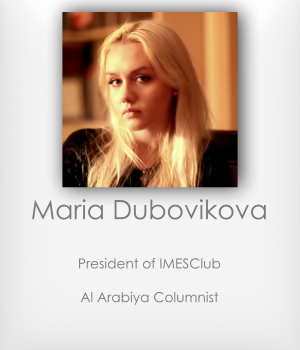 An amusing photo has been doing the rounds on social media, depicting “the international community” as being solely comprised of Western states, or Western-affiliated states.
An amusing photo has been doing the rounds on social media, depicting “the international community” as being solely comprised of Western states, or Western-affiliated states.
When media reports or politicians say “the international community approves” or “the international community disapproves,” they are really only talking about these countries, forgetting the rest of the world.
While the leaders of the international community discuss the prolongation of sanctions against Russia at the G7 meeting, Russia and Egypt have had their first ever naval drills. The goal of the eight days maneuver was to strengthen military cooperation between the naval forces of the two countries in the interest of security and stability at sea. Earlier, in late May, Russia and China also strengthened their cooperation and ties through military exercises in the Mediterranean, apparently reminding “the international community” that the countries of the rest of the world do exist and their interests and their perception of the global agenda should be taken into account, and what is more, it could differ a lot from what “the international community” thinks.
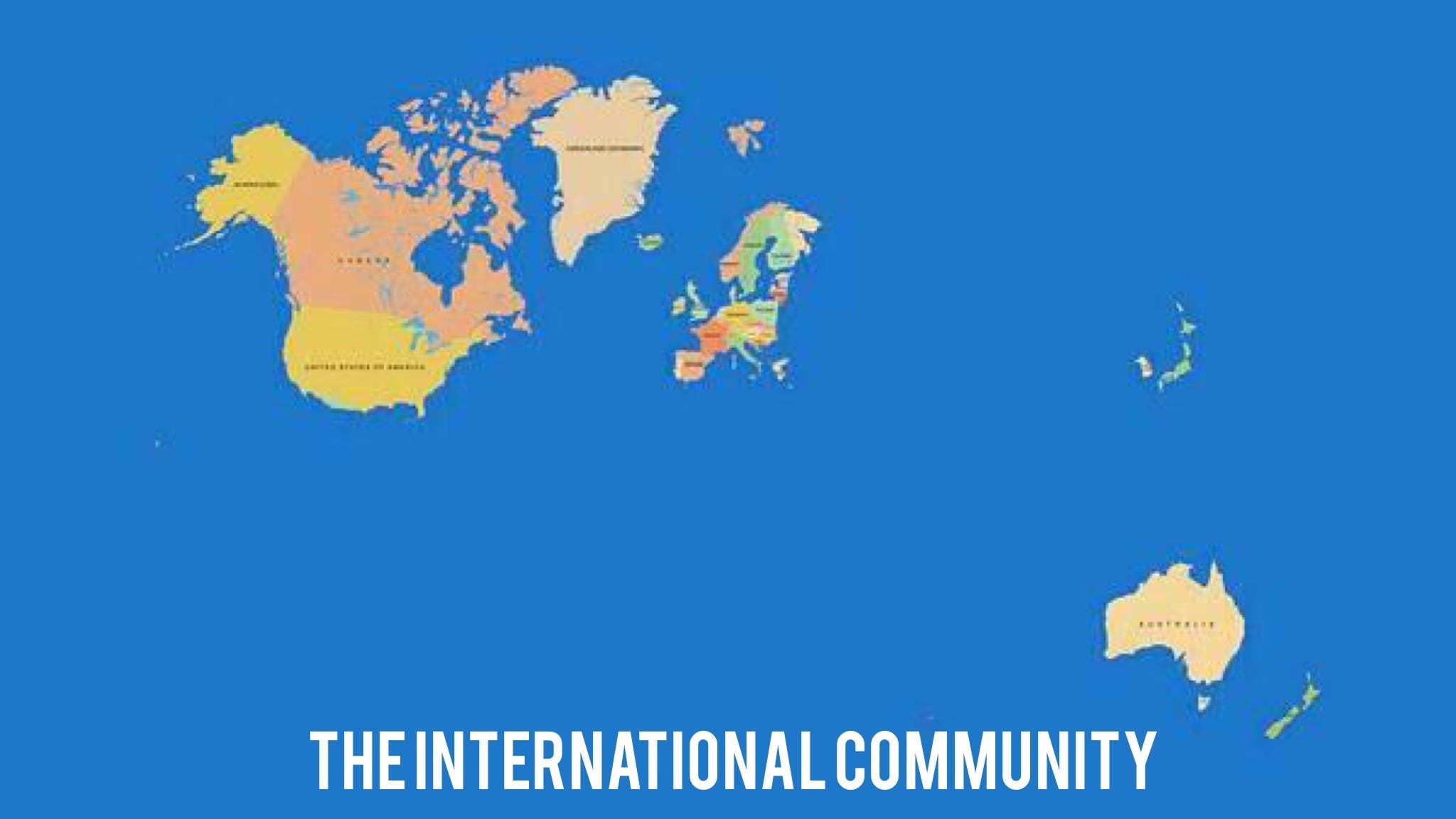
Current circumstances
In the current circumstances, when relations between the West and Russia are at a low point, the alliance between Russia and Egypt reminds us of the Soviet-Egyptian friendship in the difficult times of the Cold War. Egypt’s Abdel Fattah al-Sisi was among the guests of the Victory Day celebrations in Russia, a sign of the warm relations between the two countries. Nuclear cooperation as well as tourism also highlight warming relations.
However, military cooperation is one of the most successfully developing spheres, and it forms the bases of the general cooperation between the two countries.
The strategic alliance between the two countries is neither a threat to the stability of the countries of the Northern Mediterranean, nor a muscle-flexing game
Maria Dubovikova
The temptation of building parallels of analogies between the present and the past is sweet but much better avoided. The current confrontation is not a new Cold War, at least not yet. This friendship doesn’t have a confrontational core — this friendship is not modeled against other camps or countries.
The sides are motivated to draw together due to common interests, common threats and expected mutual benefits. Russia is not the Soviet Union; it has a market economy, it is integrated in the international trade. The Western sanctions and reciprocal measures taken by the Kremlin have struck the internal economy and pushed the country to the diversification of economic ties, needed long time ago though, thus pushing it towards Asia, Africa, South America and the Middle East. Relations with Egypt are important for Russia, but pale in importance and significance to its ties with China and neighboring countries. Russia does not have so much to propose to Egypt to take it in its orbit completely. Furthermore, the existing stereotypes, narrow-mindedness and perceptions deep in the Russian mentality about Egypt, formed mostly in the pools of the all-inclusive Egyptian resorts, ignorance about the country’s history and culture, worsened by the moderate Russian chauvinism towards the Arab world, don’t contribute to the development of relations on the level of civil societies, and even of business circles, thus anchoring the speed of bilateral relations development.
Finding friends
Egypt is not limited by its ties with Russia from doing business with other countries. It takes considerable attempts to attract investments from all over the world in its huge economy that needs to be well fueled to kick start considerable growth - its potential is truly enormous. Egypt recently signed a historical military cooperation protocol with France. It is also upholding traditional ties with the U.S., however, the trust has been undermined.
The epoch of ideology affiliation is over, and logic of ties is dictated by economy, business and other political interests, preconditioned by the internal demands.
The bilateral relations between the two countries are cemented by the truly warm personal relations between national leaders, who have much in common: both strong, powerful and charismatic. The multi-confessional core of the counties, that in the case of Egypt faced a dramatic threat under the Muslim Brotherhood, unites the countries, as well as a moderate conservatism and illiberal democracy that is installed within their borders and raises much criticism from “the international community.”
The strategic alliance between the two countries is neither a threat to the stability of the countries of the Northern Mediterranean, nor a muscle-flexing game. However, the “international community” has too much temptation to look at the matter in this way, especially taking into account the current confrontation between Russia and the West. Mostly it’s a reminder that there is life beyond the borders of “the international community,” that there are players strong enough to form alliances and to have military drills in “the international community’s” backyard. Taking into account the global challenges and threats the world now faces, the strategic alliance between Egypt and Russia should mostly be welcomed, as cooperation between them has a direct influence on the security situation in the regional space and thus is in the interests of all players.
Les défis de l’Égypte du président Sissi
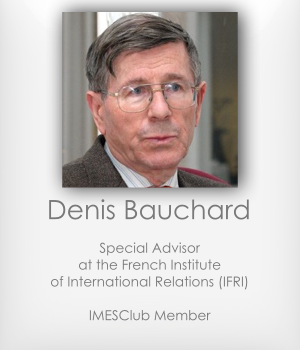 Résumé
Résumé
L’Égypte – qui a connu en quatre ans deux révolutions, quatre présidents et trois constitutions – semble entrée dans une phase de stabilisation et de reconstruction politique et économique.
L’armée, après une période de retrait apparent, a repris le pouvoir et rétabli l’ordre. Les maladresses, voire l’incompétence de l’équipe de Mohamed Morsi, mais également l’hostilité que le pouvoir des Frères musulmans a suscitée dans « l’État profond », expliquent cette «normalisation». Élu par un scrutin quasi plébiscitaire, le général Sissi bénéficie d’une réelle popularité. Par des gestes forts, il cherche à rassurer une population qui, lasse du chaos, souhaite retrouver sécurité et emploi.
Le président Sissi ne veut pas apparaître comme le restaurateur d’un ordre ancien. En rupture avec l’ère Moubarak, ilentend gouverner autrement grâce à l’appui d’une nouvelle génération. Le premier défi qui l’attend est la reconstruction des institutions. La première échéance est celle des législatives, à l’automne prochain, qui pourraient bien se dérouler dans un contexte de dégradation des libertés publiques et d’atteintes aux Droits de l’Homme, qui touchent une Confrérie durement réprimée mais aussi les opposants libéraux. La stabilité politique ne sera assurée que si les nouvelles institutions associent les différentes sensibilités égyptiennes à la vie politique. Par ailleurs, la relance de l’économie est un autre défi. L’appui financier massif des pays du Golfe et le succès de la conférence de Charm el-Cheikh sont des éléments favorables à la reprise des investissements et de la croissance. Enfin, le terrorisme est un autre défi majeur que doivent affronter les autorités dans le Sinaï.
La politique étrangère du président Sissi est axée en priorité sur la volonté d’assurer la sécurité du pays. Trois zones appellent une attention particulière : la Libye, la bande de Gaza et le Yémen. Cette politique vise aussi à diversifier les relations extérieures de l’Égypte : avec la Russie, l’Europe et la France, et la Chine. Malgré quelques crispations, l’alliance stratégique avec les États-Unis ne sera pas durablement affectée. L’Égypte est de retour en tant que grande puissance régionale et veut reprendre le leadership du monde arabe comme on l’a constaté au récent sommet de la Ligue arabe de Charm el-Cheikh. Le Caire joue à nouveau dans la cour des Grands.
Introduction
En arrivant au Caire près de quatre ans après la révolution de la place Tahrir, nul changement significatif ne frappe. L’agglomération de près de vingt millions d’habitants connaît toujours les mêmes embouteillages, les mêmes voitures de luxe côtoyant des véhicules qui ne semblent tenir que par la rouille, et les mêmes charrettes tirées par des ânes. Autour de la place Talaat Harb, tard dans la nuit, les magasins fortement éclairés offrent au choix des complets vestons ou des habits traditionnels. Il en est de même au souk Khân el-Khalili, où chaque métier et chaque type de commerce ont leur place précise. La foule y est toujours dense, y compris dans les cafés et restaurants situés en face de l’université Al-Azhar. Si le hijab est de rigueur chez les femmes, beaucoup de jeunes filles portent pourtant chemisier moulant et jeans à la mode. Le café Fishawi, cher à l’écrivain Naguib Mahfouz, est toujours aussi fréquenté. Même affluence au parc paysager Al-Azhar, aménagé sur une décharge publique par la fondation de l’Aga Khan : il attire, malgré son entrée payante, un public familial nombreux qui pique-nique, danse et déjeune dans ses différents restaurants. Les jeunes mariés viennent s’y faire photographier.
Après avoir connu en quatre ans deux révolutions, quatre présidents et trois constitutions, l’Égypte semble retrouver une vie normale, même si plusieurs signes laissent penser que quelque chose a changé. De fait, après une période chaotique, le pays est entré dans une période de stabilisation et de reconstruction politique et économique qui n’est pas encore terminée.
Lorsqu’on traverse le quartier des ministères, à proximité de la place Tahrir, on constate que chaque bâtiment officiel est protégé par des murs en béton pour casser le souffle d’éventuelles charges explosives. Des militaires casqués et armés montent la garde. Des chevaux de frise sont pré-positionnés. Le siège de l’ancien parti – le Parti national démocratique –, incendié en janvier 2011 par les manifestants, reste une carcasse vide. Le Musée égyptien, habituellement animé par des groupes de touristes, est désert. La place Tahrir, réaménagée, est vide de manifestants et les marchands de souvenirs révolutionnaires ont disparu. Toutefois, les grandes fresques qui célèbrent la révolution et couvrent les murs de l’université américaine, située à proximité de la place Tahrir, sont toujours visibles.
De fait, l’armée, après une période de retrait apparent, a repris directement le pouvoir et rétabli l’ordre. Le maréchal Sissi, qui bénéficie d’un large soutien de l’opinion publique, doit faire face à de nombreux défis : politiques, avec la mise en place de nouvelles institutions ; économiques, avec la nécessité de faire redémarrer une économie sinistrée par les troubles révolutionnaires ; et sécuritaire, avec un risque terroriste qui se manifeste au quotidien. L’Égypte, qui a toujours été le centre de gravité du monde arabe, entend affirmer à nouveau son leadership, se présenter comme une puissance régionale, et jouer dans la cour des Grands.
Pour poursuivre la lecture cliquez sur le prévu du document:
The crisis in Yemen could well turn extremely tragic.
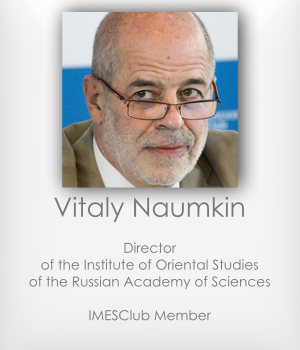
The crisis in Yemen could well turn extremely tragic. Making overall predictions is difficult because how the situation develops will depend on how certain players behave, and we aren’t privy to their intentions. I do think, however, that the Saudis and their coalition partners have made a mistake with aerial bombardments. It’s simply inconceivable that such a destructive approach — particularly in an already impoverished country — could provide any resolution.
The Houthis’ objectives seem clear enough: They want to get their share of the distribution of power and resources and are not at all, in my opinion, trying to establish full control over the whole country. I think they understand that simply won’t happen. It looks as if they are using military force to secure strong starting positions for the inevitable subsequent negotiations — in order to get their piece of the pie. But do they understand that the assault on the southern part of the country, where they are perceived as outsiders, involves great dangers for them? Here they also seem to have made a mistake, miscalculated. They shouldn’t have meddled in Aden and the southern provinces. They are doing it under the pretext of striking at the Islamist radicals, at Al-Qaeda, based in the south; but the reality is that they will end up pushing the local population toward Al-Qaeda as a powerful force able to resist the onslaught of the Houthis. There was no point in the advance. They should have been satisfied dominating the northern part of the country, having expelled their longtime enemies, the Salafis. Then they could have dictated their own terms during negotiations with a better chance of achieving their political and economic demands.
Yet if we look at the opposing coalition, it’s not remotely clear what it wants. To destroy the huge portion of the population that supports the Houthis? That’s impossible. What, will they just keep on killing people without end? Do they want to completely destroy the infrastructure of the country? It’s incomprehensible what this could do for them. Do they want to force the Houthis to surrender? To lay down their arms? To say: Let Hadi return; let him imprison, hang or shoot us instigators while everyone else can live long and happy lives? What is it they want? Do they want to deploy ground forces to force the Houthis back to where they’ve always lived, to the north, and to secure some strategic spots in which to place people connected to Hadi’s administration? But it doesn’t seem as if anybody is preparing for a ground war — which would be a bloodbath. So the goals of these people simply aren’t wholly evident. Even if foreign boots were committed on the ground, it’s quite likely that Yemeni Shia and Sunni would unite against the outsiders. That’s already happened, in the 1960s, when Egypt supported the revolution of 1962 and sent forces into Yemen. Over the course of a few years, Egypt lost almost 26,000 lives — losses much greater than those of the USSR in Afghanistan — even though Yemen is a small country and the Egyptians did not have a large contingent. Today the very same story can be repeated anywhere. The coalition is quite aware of this, and no one is burning with desire to fight in the mountains of Yemen — especially when it’s not even clear whom to fight. But even if we assume the coalition forces could break the Houthis and push them back North: Who, then, would take their place?
Incidentally, I told my Egyptian friends: “You’ve taken your place under the Saudis’ banner. You want to defeat the Shia. You are afraid they might supposedly gain control of the Bab-el-Mandeb Strait and interfere with maritime traffic through the channel. That is unlikely: They’ve never set themselves such a goal and couldn’t if they tried. It’s another impossibility. They are well aware that they would run into big trouble. But still, let’s say you disperse them. Who will come to power? The very people you consider your enemies: the Muslim Brotherhood, the Islamic bloc Al-Islah[a1] (the same Brotherhood), or even Al-Qaeda or related groups. In other words, a Salafi alliance will rise up and govern the country; you’ll get a country ruled by your enemies. You’re thinking that Iran is calling the shots in Yemen now, or afraid it will in the future. But what you’ll get instead is those you consider your enemies in power. It’s obvious that the fruit of your labors will be much worse for you.” This military, interventionist approach, recalling the Libya playbook of internal conflict resolution, is another dead-end in a fragmented and heterogeneous country like Yemen, with one possible outcome being the division of the country. I do not rule out the partition of Yemen, with the most likely split between North and South; although even further fragmentation is possible. Perhaps this is what the enemies of Yemen want. A worst-case scenario would involve a bid for Hadhramaut to secede, a region with historical ties to Saudi Arabia and one which is drawn to it: There are tribes continually crisscrossing the border with a vested interest in keeping it open. It’s not impossible that the tribal and trade elite in this region would like to place Hadhramaut under Saudi control. If utter mayhem ensues, Al-Qaeda could proclaim a state there. People are afraid to fight them, so they don’t strike Al-Qaeda but strike the Houthis.
A degeneration into complete chaos is not beyond the realm of possibilities — something along the lines of the current situation in Libya, with roving tribes, gangs and fighters killing each other, plundering and destroying. At that point it will be senseless to talk about restoring the country. This is not Libya; it is a comparatively large country with about 26 million people and a large, inaccessible, mountainous territory. It is filled with a whole lot of weapons. It is situated at a strategic trading crossroads. The situation is very alarming. And the only road to a settlement is peace talks, peace talks with the participation of the Houthis. But apparently Saudi Arabia does not want the Houthis to participate, although at some point early on the Saudis themselves proposed such negotiations. To sum up, I fear that for now there is little reason for optimism.
The commentary was taken on the 3rd of April, 2015
by the IMESClub President Maria Dubovikova
#TeaTalk Interview with Mustapha Tlili: The Arab Spring and the fall of political Islam
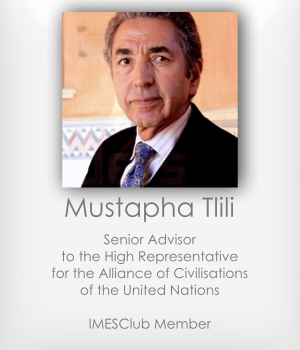 Maria Dubovikova: Tunisia has become the first democracy in the Middle East, first of all due to the fact that its society is far more liberalized than any other country of the Middle East. Tunisia has once more confirmed that policy of “putting the cart before the horse” is useless, that obtrusion of democratic institutions doesn’t lead to the establishment of liberal democracy, and that to establish one, the society itself should be liberalized, which will automatically lead to the establishment of democratic rule. So can we say that Tunisian success becomes possible thanks to its historically strong ties with France? And in this case why didn’t the Arab Spring touch Morocco, which also has strong ties with France and a society that is more liberalized compared to the other countries of the MENA? Or, if Tunisia was and is the most liberalized country of the Middle East, why did the Islamists win the first elections after the fall of Ben Ali?
Maria Dubovikova: Tunisia has become the first democracy in the Middle East, first of all due to the fact that its society is far more liberalized than any other country of the Middle East. Tunisia has once more confirmed that policy of “putting the cart before the horse” is useless, that obtrusion of democratic institutions doesn’t lead to the establishment of liberal democracy, and that to establish one, the society itself should be liberalized, which will automatically lead to the establishment of democratic rule. So can we say that Tunisian success becomes possible thanks to its historically strong ties with France? And in this case why didn’t the Arab Spring touch Morocco, which also has strong ties with France and a society that is more liberalized compared to the other countries of the MENA? Or, if Tunisia was and is the most liberalized country of the Middle East, why did the Islamists win the first elections after the fall of Ben Ali?
Mustapha Tlili: Tunisia and Morocco are different in many ways. First, they are different in terms of their size and population. On the one hand, you have about 30 million people in Morocco and approximately 10-11 million in Tunisia. Second, Tunisia is far more urbanized – you could even say far more advanced – than Morocco. Morocco remains a more rural country. Tunisia is up to 85% urban. That’s a big difference. If you look at the map of Tunisia, you’ll see that the concentration of the population is along the coast. And that concentration of the population along the coast orients its outlook towards the north, rather then towards the east or the west. When Tunisians think about their daily lives, of how to improve them, they don’t think east or west. They think north because Sardinia (Italy) is 20 minutes away by plane; Rome is 40 minutes. You can take a morning flight, do whatever you have to do in Rome, and come back in the afternoon. Paris is practically the same distance. The flight takes less then two hours. You can go there in the morning and come back in the afternoon. The whole length of Southern France and Southern Italy is so close – that has a huge impact. Also, the middle class in Tunisia is much stronger than the middle class in Morocco. Tunisia is more successful in terms of GDP, of buying power, of the level of comfort of middle class living. They invest in lasting things – houses and other property – connected with stability. If you are raised with these things, you are not going to burn down your own things or your brother’s – you are rising up because you want to change the structure. In Morocco, the population cannot even rise up because of the overwhelming power of the Monarchy and the tools of oppression the Monarchy has at its disposal. In Tunisia, when the break-down happened, it was a real revolution intended to stop the corrupt regime and the power it exercised through the police. The revolution was also connected with middle class ideology and demographics – hundreds of thousands of youth that were very well educated, with university diplomas, but jobless. If you look at the slogans of the revolution, they are dignity, employment, and freedom of expression. You’ll find them to be almost the same slogans of the Prague Spring – they were calling for freedom, for freedom of expression, for the end of dictatorship, and so on and so forth. In Morocco you didn’t have this. You had only a few demonstrations…
MD: Shut down by the government.
MT: Yes. These are differences that are very important and which we have to keep in mind. Also, the Islamists got into the picture later – they were not initially part of the revolution. The dictator fled the country on January 14, 2011. The following day «Project Syndicate» asked me to write a piece on the event. It appeared on January 20. By that time, most of the analysts expected the Islamists to come. But the Islamists were nowhere to be found. I started my piece this way. And this is a fact. Twenty years after The New York Times featured the fall of Bourguiba, the front-page article announced the flight of Ben Ali with a big picture. Look up that photo: it was a photo of a huge demonstration on January 14, the day Ben Ali fled the country. There is a sea of men and women. I looked at the photo trying to find a single woman with a headscarf or hijab, trying to find a single man with a beard. I started my column precisely with this observation. There is no way you can look at this image and find the Islamists present. If you look at the slogans that prevailed during these demonstrations, there was not a single call for the application of sharia. The protesters demands were – without exception – the typical demands of a middle class country for more freedoms. What happened, as history will show, is that Islamists were pushed by some powers to take advantage of the situation and to start making their presence known. And that is what happened in Tunisia. Suddenly, some of them who had been in exile, like Ghanushi, began showing their heads. And they had a lot of money. They were inundating the country with money to show their power. For instance, they bought a huge modern building to serve as their headquarters. Then they stated spreading their network across the country through local offices they established all over the place. They also started doing charity work in the country knowing very well there would be elections in few months. Spending huge amounts of money – and there are many indications that this money came from Qatar – the Islamists started preparing for elections. And given the sympathy that the Islamists had gained when they were in prison and in exile, and given the fact that secular forces (leftists, liberals, etc.) were not united and were fighting each other for power, the results of the elections were disastrous. The Islamists won over 80% of the vote. It had been agreed before the elections that the winning force would form the government. Despite their victory, the fact is, the Islamists were late to the party. The same is true for Egypt. If you go back to the history of that period (which already seems far away), the Islamists were not even thinking about presenting candidates for election. They said they were not thinking of running for the presidency. But then they changed their mind.
MD: Yes, as they could not imagine themselves coming into power after the years of oppression!
MT: Yes! And it should be said that when the Islamists came to power in Tunisia, instead of focusing on the demands of the revolution (jobs, dignity, freedom), they thought they had a mandate to change the identity of the country…. to impose sharia, to roll back the rights of women, to Islamize the country as if the country was not Muslim enough. And when Tunisians realized these objectives, they said no.
MD: I read, if I’m not mistaken, an article on the basis of your interview, given in February of this year to the Tunisian website. There you have said that there is an end of political Islam in Tunisia.
MT: Not only in Tunisia, but all over the Middle East.
MD: But what about ISIS? It’s not just Islamism, it’s extremism, and what’s more, it is an Islamic political extremism. I think it’s a new phenomenon we’ve never faced before in modern history. Are you taking into account the Salafists in Egypt who are much more conservative than the Muslim Brotherhood and still remain popular enough and have their electorate, or taking into account that there are many people who share the Islamist ideas, who even join the ranks of ISIS pushed by their faith? Can we really talk about the end of political Islam? Or maybe this is true for the current moment of history for some countries, and then the Islamists will return to power? Do you think that it is an absolute end with no possibility of recovery?
MT: Well, if we’re going to talk about the Muslim Brotherhood, we should look deep in its history. The movement's ideologue, Saïd al-Qotb, had spent one year in the United States and was overwhelmed by all the expressions of modernity, shocked by the decadence of the lifestyle and so on. And so he came back with a reaffirmed conviction that Muslim societies, which were lagging behind, could not in any way reach the West, nor improve their conditions within the Western model because the Western model was decadent – and therefore there should be an Islamic solution. He came up with the slogan: Islam is the solution. In the minds of al- Qotb and his successors, we should go back to the Islamic tradition, to the past. We have to renew the things that we have lost, we have to revive the ways of the Prophet, the ways of the caliphs, and the ways of those who the caliphs governed to solve today’s problems. Sometimes they got the chance to act openly; sometimes they were oppressed. But the Muslim Brotherhood persisted in Egypt through several different experiments in nation-building: first, the Pan-Arabism of Nasser, which failed, then pan-socialism. (This was also during Nasser’s time; what started as a Pan-Arabism evolved into the propaganda of Arab socialism under the influence of the Soviet Union and following Egypt’s problems with the U.S. due to the Israel issue.) That also failed. Then came Sadat, and a new period of authoritarian nationalism, which continued through Sadat’s rule and most of Mubarak’s rule. In the background, there was always a possibility of an “Islamic solution,” but until the revolution, the Islamists never had the chance to prove that their solution worked. And this is why they were elected by a majority in Egypt: because the people believed that since all the previous solutions had failed, these guys must have the answer. We know the result – in Egypt as well as in Tunisia. The Islamists were given a chance to rule for three years and they were a total failure. This is why I say the movement is over – because they had a chance to make an impact –
MD: But the chance is lost.
MT: It is for today. Take communism! It had its time. The industrial revolution saddled the labor class with numerous problems. Then came Marx with a beautiful theory, Engels to transform this theory into action, then Lenin and so forth. For all of them, communism was a solution. Seventy-five years later, it collapsed. It could not satisfy people’s demands and aspirations. The propaganda claimed, «We are better than the West», but the reality was different. Now having seen and lived in a consumer society, Russians are not going back to communism. Communism had its chance, but it failed.
Similarly, political Islam and the Muslim Brotherhood won’t come back. That’s why there is a crisis within the MB. There is a big crisis within Ennahda in Tunisia, too, because they know that they have failed. They have to review and revise their ideology and rid it of ideas like the establishment of sharia. Perhaps they should think of themselves as a Muslim party in the same way Christian democrats in Europe are inspired by Christian principles, but do not try to create a system of governance based in Christian authority. As long as the Islamists continue trying to create a system of governance according to Islam (such as sharia), as long as they stay as they are, they have no chance of being part of the political system and the society.
MD: Ok! But if the Islamist ideas are no longer attractive to these societies – taking into account the dramatic catastrophe that is going in Iraq and Syria – why do they still appear to be attractive for Europeans, who are fleeing the countries they are living in and joining ISIS? Why, as this kind of Islamism loses its influence in the Middle East, is it at the same time gaining supporters and partisans in Western societies?
MT: The reason for this is a failure of European countries in integrating Muslim immigrants. If you look at those who are joining the ranks of ISIS, they are marginalized youth. Many have been in prison or were drugs addicts. This is what I love about sociology – you are going to the roots of social problems. It’s clear if you look at the biographies of those who have joined ISIS that there has been a failure of immigration policy and failure of integration of Muslim immigrants into European societies. The reason why the ideology is attractive is because the youth who are rejected, who are marginalized, find in the preaching of those extremists who approach them something they can identify themselves with while seeking revenge against the West. If you look at the videos they produce and analyze the language of these videos, they are all about revenge. Take another symbol– the robe their prisoners wear. Those orange clothes are meant to remind you of Abu Ghraib prison in Iraq where the Americans tortured their prisoners.
MD: Lakhdar Brahimi accused the West of contributing to the creation of ISIS. Do you agree with him?
MT: No. The West produced horrors that remained in the imagination of these young people, who saw these images on TV. And when you are living in a marginalized society, or society group, growing up with the images of torture of Muslim co-religionists in Syria and Iraq, then you are growing up with the feeling that you should take revenge. And in that sense, the West has contributed, but not – at least in my perspective – by allowing or helping ISIS to be formed. We have to be very careful. But in the sense of the 2003 Iraq war having influence on the formation of ISIS – yes, he is absolutely right. If you look at the composition of ISIS, at who the soldiers are…
MD: The ex-Saddam soldiers!
MT: Yes! And the U.S.’s big mistake in the early years of the occupation was the disbandment of the Iraqi army, which created an army of unhappy people dreaming of revenge.
En frappant la Libye, l’Egypte veut réaffirmer son statut de puissance [in Fr]
 L’assassinat de vingt et un coptes égyptiens confirme ce dont on se doutait déjà, la volonté de l’Etat islamique (EI) d’affirmer sa présence et son influence en Libye. Se réclamant jusqu’alors d’Al-Qaida, certains éléments du mouvement Ansar ach charia semblaient depuis quelques mois se tourner vers Daech. La vidéo, publiée le 15 février par l’organisation terroriste, ne laisse plus de doutes. Reprenant la rhétorique habituelle du mouvement, cette nouvelle action de l’EI poursuit plusieurs objectifs : terroriser tout opposant à son influence ; recruter de nouveaux combattants ; provoquer des réactions en Occident qui puissent être exploitées comme stigmatisant les musulmans ; désigner l’Egypte comme un nouvel ennemi.
L’assassinat de vingt et un coptes égyptiens confirme ce dont on se doutait déjà, la volonté de l’Etat islamique (EI) d’affirmer sa présence et son influence en Libye. Se réclamant jusqu’alors d’Al-Qaida, certains éléments du mouvement Ansar ach charia semblaient depuis quelques mois se tourner vers Daech. La vidéo, publiée le 15 février par l’organisation terroriste, ne laisse plus de doutes. Reprenant la rhétorique habituelle du mouvement, cette nouvelle action de l’EI poursuit plusieurs objectifs : terroriser tout opposant à son influence ; recruter de nouveaux combattants ; provoquer des réactions en Occident qui puissent être exploitées comme stigmatisant les musulmans ; désigner l’Egypte comme un nouvel ennemi.
S’en prendre à des chrétiens ne tient pas du hasard : la violence à l’égard des minorités chrétiennes en terre d’islam déjà évidente en Irak et en Syrie s’étend. Cette action, multiple dans ses intentions, marque une nouvelle étape dans l’ascension d’un mouvement qui bénéficie de plus en plus de transfuges d’autres groupes djihadistes et qui déborde de plus en plus le « djihadistan » syro-irakien qu’il contrôle.
La Libye se trouve livrée au chaos, d’où deux pôles représentés par deux gouvernements et deux Parlements. A Tripoli, le gouvernement « révolutionnaire », émanation de l’ancien Parlement, le Congrès général national libyen, qui s’est autoprolongé, composé de forces islamistes, notamment les Frères musulmans, soutenues, financées et armées par la Turquie et le Qatar. Aube de la Libye – Fajr Libya – fédère ces forces.
To read the whole article click the preview:
Published by IMESClub following author's permission.




